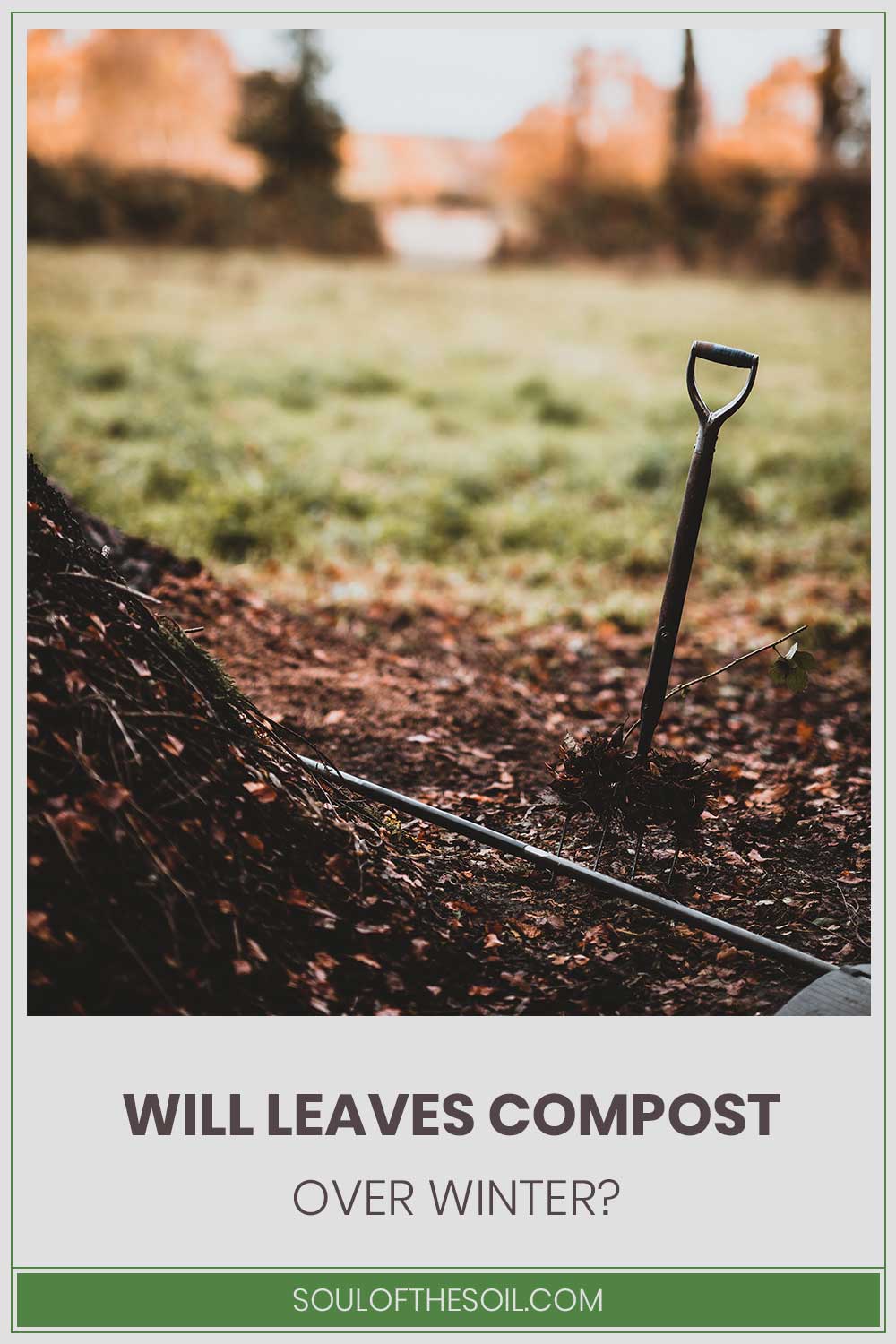Will Leaves Compost Over Winter?
We may earn commissions for purchases made through links on our site. Learn more on our about us page.
Creating a winter compost is simply a tradition for many, and it becomes very handy when spring comes around. Since the compost freezes, you’ll turn the compost when it thaws in the spring – hence giving your garden a treat.
Here we will discuss everything you’ll need to know about adding leaves to your winter compost. Including if you should water them, how long it takes them to decompose, creating composts with only leaves, common mistakes you need to avoid, and more!

Should You Water the Leaves during the Winter?
Like all winter compost, you should water them. However, there are a few restrictions you should keep in mind.
If the temperatures in your area are freezing, and the water will freeze – it’s best you wait until the temperatures are high enough to a point where the compost leaves will not freeze immediately.
Let’s discuss more how long it will take a pile of leaves to decompose, specifically in the winter. As well as the possibility of creating a compost consisting of only leaves. Also, what kinds of leaves should you leave out of the compost pile? Read more below.
How Long will it take a Pile of Leaves to Decompose?
A simple pile of leaves could take up to a year to decompose in their natural state. It takes a longer period of time for a pile of leaves to decompose because, alone, they do not carry all the properties needed for a speedy decomposition process.
However, this could vary depending on the climate in which said pile of leaves resides. If the climate is known to have higher temperatures throughout the year or more humidity, the pile of leaves will indeed decompose faster than usual.
Can You Create a Compost Made of Just Leaves?
A compost consisting of just leaves can be created but will likely not contribute much without a variety of additional compost. If you are looking to create compost with leaves, you should also consider adding in other greens gathered over time through kitchen scraps.
This compost mixture will guarantee a successful winter compost because the additional variety of compost will introduce properties to the compost that the leaves cannot. However, did you know there are types of leaves that pose a threat and should not be composted?
What Type of Leaves Should not be Composted?
Yes, there are some leaves that you should never add to your compost. This is because some types of leaves carry harmful properties, as well as act as natural herbicides – which will ultimately keep your plants from being able to germinate.
Listed below are some types of tree leaves you should never add to your compost, for it could be fatal for your garden once the compost is utilized.
- The Eucalyptus Leaf
- The Black Walnut Leaf
- The Oak Leaf
- The Beech Leaf
- The Sweet Chestnut Leaf
Final Thoughts on Composting Leaves
Leaves will compost over the winter and can be watered if the temperatures will not immediately freeze the water. A pile of leaves could take up to a year to decompose naturally. However, this could vary depending on the environment.
While you can create a compost of just leaves, it’s not recommended. The compost will need additional properties that cannot be provided by just leaves. Ensure you do not include any leaves listed above in your winter compost, for it could be fatal for your garden in the spring.



Leave a Reply
You must be logged in to post a comment.